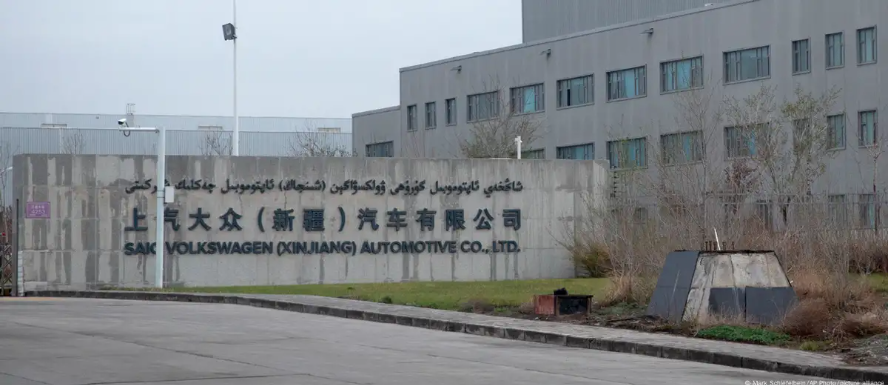Volkswagen will sell its facility and leave Xinjiang, China.
What do we know about the VW sale?
VW said it would sell its factory in regional capital Urumqi and a test track in Turpan.
A company spokesperson cited “economic reasons” for the decision.
VW grew more slowly in 2023 than in previous years, with the company falling behind domestic competitors.
The company said it would extend its partnership with Chinese firm SAIC by a decade to 2040.
The two firms said that they would sell their plant in Xinjiang to the SMVIC unit of the Shanghai Lingang Development group, which is also to take on the factory’s workers.
The move comes as VW seeks to close factories in its home country of Germany as well as lay off employees in a bid to cut costs.
European car companies are also measuring the impacts of a potential trade war between Beijing and Brussels after the EU imposed hefty tariffs on electric vehicles imported from China.
What are the Xinjiang human rights allegations?
The Uyghur people are a Turkic-speaking and predominantly Muslim ethnic group that inhabit Xinjiang.
The region is also home to a smaller minority of ethnic Kazakh and Kyrgyz.
Human rights organizations have accused China of holding over a million people, mostly Uyghurs, in “reeducation camps,” and making use of forced labor from detainees.
Last year, several activist groups filed a complaint in Paris targeting French and US companies, accusing them of being complicit in crimes against humanity in Xinjiang as a result of using subcontractors in China.













